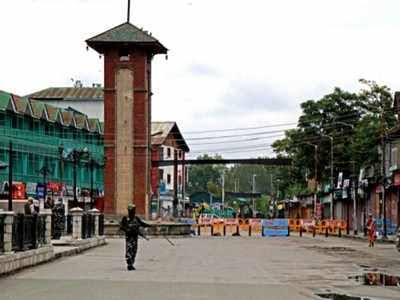It has now been more than four years since the last elected government in Jammu and Kashmir fell. The ruling alliance between PDP and BJP ended in June 2018 when Jammu and Kashmir was still a state with its own constitution and flag. The last four years have been as much politically tumultuous as they have been stagnant.
A deep political vacuum has existed since Articles 370 and 35-A were abrogated on August 5, 2019. In 2019, the region’s political parties remained dormant as their top leadership was either incarcerated or rendered incommunicado. This has led to a deepened political freeze in the union territory.
Jammu and Kashmir is being run by administration led by Lieutenant Governor. The first Lieutenant Governor, Girish Chandra Murmu, remained in the office from October 2019 till August 2020 and was succeeded by the incumbent LG Manoj Sinha who has made efforts to fill the political vacuum with his outreach programmes and public engagements.
For a single person, however, it is nearly impossible to fill this vacuum. The political parties in Jammu and Kashmir have a long history and deep system of public outreach. Even in the most turbulent years of Kashmir’s insurgency, the leaders of the political parties would meet their cadre and public which helped the wheels of democracy to move in the region. These meetings also served as a mechanism to garner feedback acting as an informal delivery mechanism of village-level issues, market concerns and economic problems of the people.
The system of political parties in Jammu and Kashmir was robust and effective. These political parties acted as an intermediary between the administration and the people. They listened to the people and conveyed it to the administration. Even though the element of corruption always existed, the truth is that this mechanism was working and people were feeling heard.
The political parties in Jammu and Kashmir had built these structures through years, decades in case of some, and through village and street-level structures, these parties had their ear to people’s concerns and problems. The lieutenant governor, being a single man, no matter the level of public outreach he attempts, cannot replace this robust system and cannot sift through the humongous noise to locate the real problems.
The political freeze in Jammu and Kashmir is creating an unhealthy atmosphere of too much power in the hands of the bureaucracy. The accumulation of immense power in the hands of the bureaucrats can never be of any interest to the people. The bureaucracy, because of the nature of its functioning, can never be an alternative to the elected representatives. The people eventually become files and statistics. The problems are solved by the book and copy-paste approach, not realizing that some solutions may not work with the people they are governing.
This is why there is an urgent need to empower the political parties in Jammu and Kashmir by holding an election as soon as possible. The rumoured October deadline that was rife in political circles has already passed for now and still there is no word on elections. The wait for an elected government, irrespective of its popularity or the lack of it, has caused huge disorder in public life. The problems are mounting and solutions are nowhere in sight. One example of this crisis is what is happening with the apple industry. For days, trucks laden with apples were stranded along the Srinagar-Jammu highway, causing the fruit to rot before it could reach the markets in Delhi and elsewhere. The economic loss caused thereof will take years to compensate.
There is another livid example of the bureaucratic sluggishness in the absence of an elected government, which exists less than a kilometer from the headquarters of the civil administration. The newly-constructed hawkers market, made exclusively for the vendors of Jehangir Chowk and its vicinity, has remained defunct since it was completed several years ago. The unwillingness of the street vendors is well-grounded in the logic that no customer would visit the isolated market. This reason was conveyed to the then administration when the construction of the market was still an idea, yet it was constructed.
The hawkers’ market was constructed at the only public parking space in a crucial neighbourhood which houses the High Court, the Civil Secretariat, the offices of Crime Branch and PDD, and several busy markets.
Long story short, the hawkers market has been defunct for several years and there is no public parking space available in Srinagar’s most important and busy neighbourhood.
Again, this is why there is an urgent need for an elected government and relieving the bureaucracy of the extra burden, which it is not able to carry. The bureaucracy in a government is trained and designed to deliver on the ideas of the elected government and the elected government is meant to find the ideas by listening to the people. It is a simple process which becomes complicated in the absence of an elected government. The bureaucracy should not be burdened by finding the ideas and then executing them. If that happens, the result would be disastrous, like the apples getting rotten in trucks stranded along the highway.
Elections are the need of the hour. An elected government is a missing link in Jammu and Kashmir that should be established. Without an elected government, the entire governing structure would falter and fall apart.


